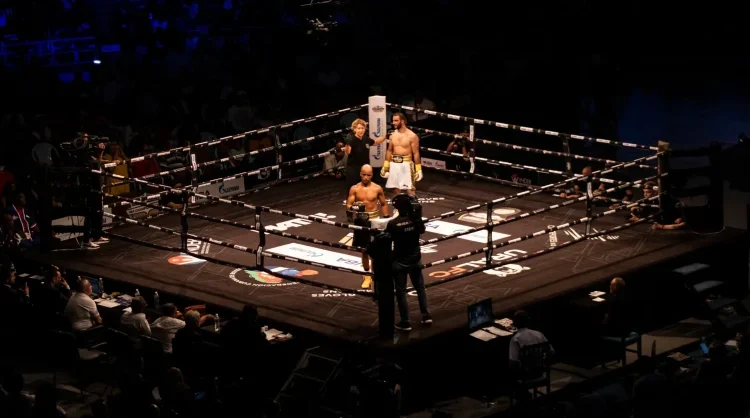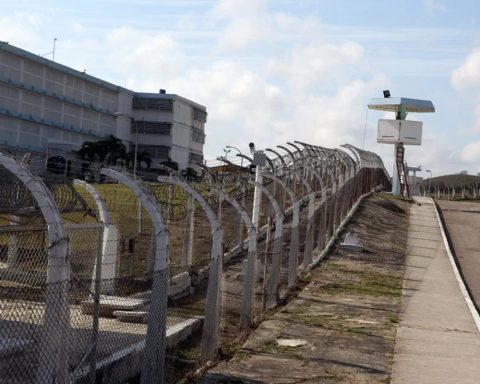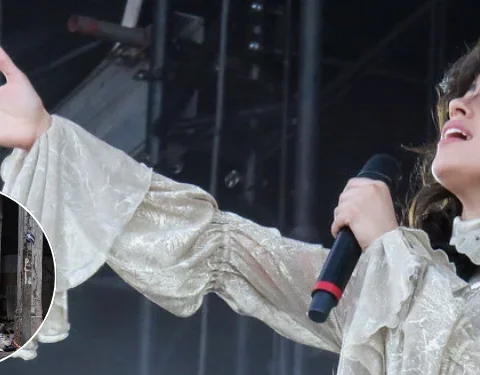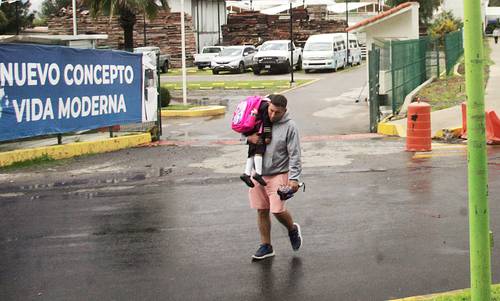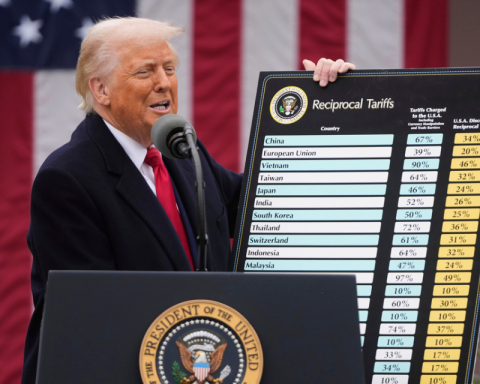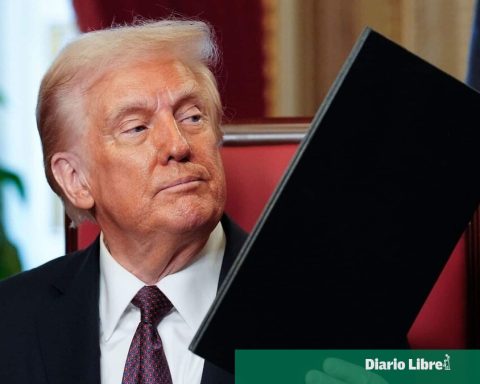HAVANA, Cuba.- On August 27, the Island became the third venue in America to host a Night of Champions Boxing. Scheduled to commemorate International Boxing Day and the celebration of the first world amateur boxing championship in Havana in 1974, the historic event marked a milestone: the triumph of paid sport versus the revolutionary sport imposed 63 years ago.
Since 2013, the Cuban government has partially kept the doors to professionalism open, allowing Cuban athletes under its legal control to be hired abroad, but within its walls it persists in supporting the practice of amateur sports. Eleven years had to pass before a national boxer could climb onto the ring of a domestic stage, as a professional athlete.
Furthermore, it was the first event This is the first of its kind in the history of Cuba after the National Institute of Physical Education and Recreation (INDER), with prizes of 120,000 and 100,000 dollars for the winner and loser, respectively, of two fights arranged for 10 rounds. However, it has not been disclosed how much of this prize money the boxers would receive, and how much will end up in the coffers of INDER as an agency that represents Cubans. The Cuban state, through its organizations and companies, drains the income of the professionals it exports, such as doctors, and also of those hired abroad by the regime.
The main reverence for the return of professionalism came from the public. More than fans, the stands at the Ciudad Deportiva, the venue for the event, were packed by more than 10,000 Cubans whose main motivation was to see their fellow countrymen earn a lot of money without having to leave the country, an expectation that dealt a powerful blow to the INDER’s nonsense about paid physical activity.
“Nobody cares if they win or lose, they already have a bundle of dollars guaranteed. That’s what counts. Some athletes have even auctioned off their money his medals because they need money, because despite being successful and being stars in their sports, they have the same hardships as any other Cuban,” he commented to CubaNet Lazaro Daniel Vazquez Echevarria, attendee at the event.
During the public weigh-in of the boxers summoned to the Night of Champions, held on Tuesday morning in the capital’s Parque Central, Juan Torres Odelín, Reno 1986 World Champion (amateur) in the flyweight category, in statements to CubaNet supported the return of professional boxing as an alternative to stop the constant flight of athletes.
“Boxing is becoming a market. The kids are leaving here to look for money in the United States. It is better that it is like this —that professionalism returns— so that they stay here,” said the former boxer, who is considered the Glory of Sport in Cuba.
Aramis Camejo Zayas, a participant in the event, said: “The power of Don Dinero, that attracted people. What else is there to see in this than in a baseball game, for example, where almost no one goes? There is money involved here, that’s all. None of us had seen anything like this. Not even because of the quality of the fights, because we know that the opponents they brought are not good.”

A smooth road for a triumphant return
There is no doubt about the quality of Cuban amateur boxing, winner of 43 Olympic golds, but at a professional level its best exponents They do not fight under the flag of the federation However, the representatives of the Domadores, the name of the Cuban squad authorized for the professional field, walked around the ring except for a few passages.
The fact that the program put two International Boxing Association (IBA) belts at stake, and an attractive cash prize, led one to believe that the Cubans’ opponents would have the backing of a good competitive endorsement. But that was not the case.
In (92 kg) Julius Caesar the Cross He faced Madiyor Saydrahimov, a boxer from Uzbekistan whose best result was a world bronze medal as an amateur, while he was a complete unknown on the professional level. In fact, with his traditional elusive style, the Cuban won the fight with ease. He was never in trouble, except with the stands.

“He’s a clown”, “all he does is run and show his gold teeth”; “he should be retired” were some of the phrases uttered by the public in their booing of La Cruz, while encouraging the opponent to strike him down with a blow that never came. The verdict was unanimously in favour of the Camagüeyan, who became world champion by the IBA.
Arlen Lopez (80 kg) also won the title after delivering the only knockout of the night to Dominican José Luis Tejeda, who replaced at the last minute the silver medalist in the 80 kilo world in 2021, the Belarusian Aliaksei Alfiorau. The Dominican, another with little professional experience, did not find the resources to alleviate the avalanche of blows launched by the two-time Cuban Olympic champion.
Rosniel Iglesias (67kg) was the protagonist of another lackluster fight of the gala. Apathetic to the spectacle, giving in to the jeers and stepping back in the face of the provocations of the Armenian Gurgen Mamoyan, the two-time champion under the five rings was mistreated by the spectators. Many protested the judges’ decision, the only divided one on the card, when they ordered his arm to be raised.

Super lightweight Lázaro Álvarez (63.5 kg) and featherweight Saidel Horta (57kg) did their job better against Russia’s Ruslan Belousov and Uzbekistan’s Mujibillo Tursonov respectively. However, both looked tired in rounds four and five, organised in the semi-professional format of six-round fights.
Although there was no belt at stake, the most anticipated fight of the night was that of Erislandy Alvarez (63.5 kg). Because of his charisma, the new Olympic gold medalist is the idol of the public. Outside the ring he is a showman, and with his gloves on he is a kind of uncompromising fighter, a species that seemed extinct in Cuban boxing.
“This kid has little time left in Cuba. He is very technical and at the same time an old-fashioned fighter, he fights one on one, with blows, which is what people like. He is the kind of athlete that fills forums, just to see him was worth paying the 150 pesos entrance fee. Well, look, even the kids know him. When he came out they started shouting his name,” said Marlon Ibáñez Alonso.
“They should tie him down, because at any moment he could jump over the pond. Any promoter from Yuma would like to have him on his billboard,” said the interviewee.
